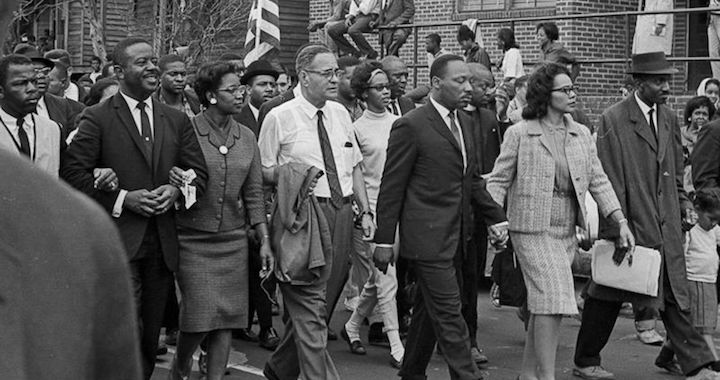This Monday, as the US celebrates the life and legacy of Dr. Martin Luther King, Jr., some of us enjoy a long weekend to rest or finish those projects that didn’t get done over the December holiday break. Others are gearing up for a day full of activity – breakfasts, marches, rallies, and of course, volunteering.
In the 1990’s the MLK holiday was made into a National Day of Service. As I’ve heard more than one pastor say, we should “make it a day on, not a day off.” Indeed, Dr. King encouraged service with statements like “Everybody can be great, because everybody can serve, ” and asking us the pointed question, “What are you doing for others?”
But in focusing MLK day predominately on service, we miss an opportunity. In a country where Dr. King can be invoked for almost any cause by any political figure – from Bernie Sanders to Donald Trump – there’s a need for his story to be told and his words to be heard. But in our eagerness to serve, listening is often an afterthought.
In fact, without listening and learning, we run the risk of operating in the same colonial and racist postures Dr. King was working to undo. Community service sets up an exchange in which privileged people with perceived resources like skills, goodwill, moral fortitude – and of course, time – offer themselves to people who have perceived needs. And because any thought of why the racial and economic disparities between the giver and receiver exist are unnecessary for that exchange, colonial power dynamics are sustained by the acts of service. Most volunteer opportunities – passing out gifts, serving meals, donating money, building houses, tutoring – involve very little mutuality. The exchange flows in one direction from the giver to the receiver.
One alternative to community service that seeks to foster a dynamic of mutuality is the practice of pilgrimage. In Durham, NC, I direct a nonprofit called DurhamCares. Last summer we began conversations with the Duke Center for Reconciliation about what it would look like to lead others in a Durham Pilgrimage of Pain and Hope. Inspired by the work of Trevor Hudson in South Africa, and the Office of Black Church Studies at Duke who had led a Durham pilgrimage some years ago, the idea was to provide an opportunity for people to encounter the city in a way that flips the script – participants would be pilgrims who come as listeners and learners rather than as experts and givers.
After two preparation meetings, we spent a weekend last fall visiting sites and hearing from leaders in Durham who have had a significant impact on the story of our city. The Stagville Plantation, where over 900 people were once enslaved, was our first stop. We heard from Melvin Speight, the leader of Speight’s Auto, a prominent “Black Wall Street” business in Durham’s Hayti community, and from Virginia Williams, who was part of one of our country’s first sit-ins at the Royal Ice Cream Parlor in 1957.
When pilgrimage participants encounter these places and hear these stories we realize, as one participant said, that “the life I am living here in Durham is part of a larger story.” We reflect on the contemporary context and why some of the current challenges the city faces have come to exist. But even more than that, times of reflection allow pilgrims to reflect on the Biblical story, seeing parallels to today and reckoning with how God’s story relates with our own. It’s humbling, confronting, and even painful. But ultimately it’s transformational – the kind of formation that community service has a hard time accomplishing.
I’m certainly not saying that community service should be jettisoned entirely. Great organizations need volunteers to carry on their work. But an additional way to honor the life and legacy of Dr. King today would be to find spaces where you can learn more about his actions and the resistance he faced, or hear words from speeches and writings beyond “I Have a Dream.” And once the holiday passes, we can all find ways to learn the stories of pain and hope in the cities where we live. One of the key ingredients of pilgrimage is the recognition that service is never a single event or experience. As servants of Jesus, we are pilgrims on a journey toward beloved community. And every day we can be attentive to the weaving together of God’s story, our own stories, and the stories of the places we live.

